Let’s talk about heart health.
In order to keep your heart strong and healthy, one easy thing you can do is take a look in your fridge.
If you see more sugary sodas than healthy dark greens, it may be time to reconsider a more heart-healthy diet.
February is National Heart Month — so what better time to put a little extra effort into changing your diet and focusing more on the health of your heart?
WANT TO LIVE LONGER? FOLLOW 8 HEART-HEALTHY HABITS, SAYS AMERICAN HEART ASSOCIATION
But all year long, there is smart advice worth following.
Heart disease is the leading cause of death in the United States, according to the Centers for Disease Control and Prevention.
Luckily, these dietary changes remain in your control and help keep your heart healthy.
Spend time learning more about your heart and begin habits to continue throughout the year for an overall healthier lifestyle.
Next time you head to the grocery store for your weekly shopping, add these heart-healthy foods to your list.
- Dark leafy greens
- Olive oil
- Avocados
- Berries
- Beans
- Salmon
- Whole grains
- Walnuts
- Flaxseed
- Grapes and grape juice
- Papaya
- Dark chocolate
- Almonds
- Sweet potatoes
- Pomegranates
1. Dark leafy greens
Dark leafy greens include veggies like spinach, kale and collard greens.
Isa Kujawski, MPH, RDN, founder of Mea Nutrition LLC, says consuming these vegetables helps to protect you against cardiovascular disease because they’re packed with nutrients.
SPINACH VS. KALE: WHICH IS ‘BETTER’ FOR YOU? NUTRITIONISTS SETTLE THE GREAT DEBATE
Dark leafy greens are high in fiber and micronutrients, which help to keep your heart healthy.
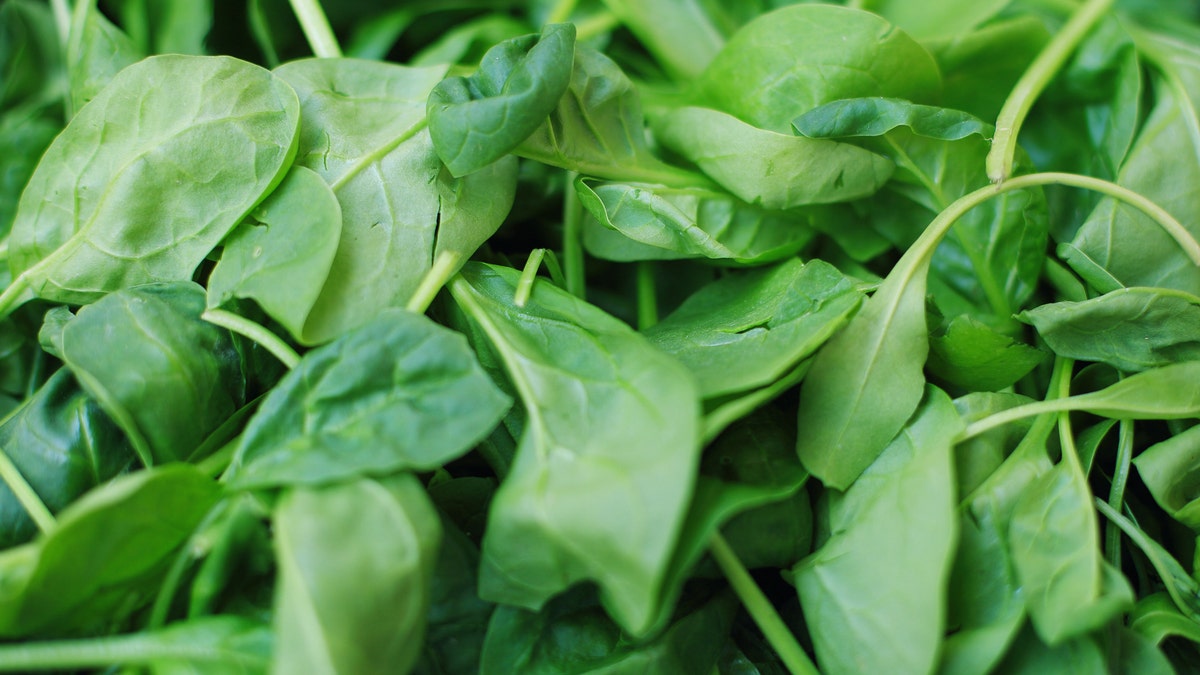
2. Olive oil
Incorporate olive oil into your recipes when you’re able to, in order to keep your heart strong.
Erin Kenney, MS, RD, registered dietitian and CEO of Nutrition Rewired, recommends putting olive oil into your salads or adding it to homemade hummus as opposed to just heating it and using it to cook.
Olive oil is full of antioxidants, polyphenols and vitamins, all of which are good for your heart, says Kenney.
3. Avocados
No matter how you eat your avocados, they assist in improving your heart health.
Mash them for your favorite homemade guacamole recipe or spread them over your morning toast and receive the same nutritional benefits.
Amy Adams, RDN, LDN, says that avocados are a great source of monounsaturated fats plus potassium and magnesium.
All of these things, Adams said, are good for keeping healthy blood pressure.
4. Berries
Berries are sweet, refreshing and contain lots of vitamins, minerals and antioxidants.
Though eating more fruit in general has a positive impact on heart health, according to Kristi Ruth, RD, LDN, blueberries are at the top of the list when it comes to heart healthy fruits.
Blueberries are high in antioxidants, including anthocyanin, which is very good for the heart.
Sprinkle a handful of blueberries over your morning oatmeal or yogurt with granola and honey for a heart-healthy breakfast.

5. Beans
What food lowers cholesterol, blood pressure, inflammation and helps with digestive wellness? Beans.
Beans, according to Kujawaski, are great for the heart, mainly because of the high fiber content. They also contain plenty of vitamins, minerals and phytochemicals.
6. Salmon
Did you know that high-fat fish such as salmon can decrease your risk of death from cardiac arrhythmias? Cardiac arrhythmia is an irregular heartbeat that can lead to death.
The omega-3 fats that are found in fish reduce inflammation, says Kenney. She recommended eating two to three servings of high-fat fish per week, which includes salmon, herring, anchovies or mackerel.
CARDIOLOGIST ANSWERS SOME OF THE TOP HEART HEALTH QUESTIONS ON GOOGLE FOR AMERICAN HEART MONTH
If fish isn’t your cup of tea, fish oil supplements are also a good option that can provide similar benefits.
7. Whole grains
Whole grains are great for heart health. Whole grains are also fairly easy to incorporate into your diet, since they can be consumed in so many different ways.
You can do so by switching to whole grain pasta, brown rice or wheat bread.
Kristin Gillespie, MS, RD, LD, adviser for Exercisewithstyle.com, said whole grains have the opposite impact on your body that refined carbohydrates do.
Refined carbohydrates increase the risk of heart disease, while whole grains protect the heart.
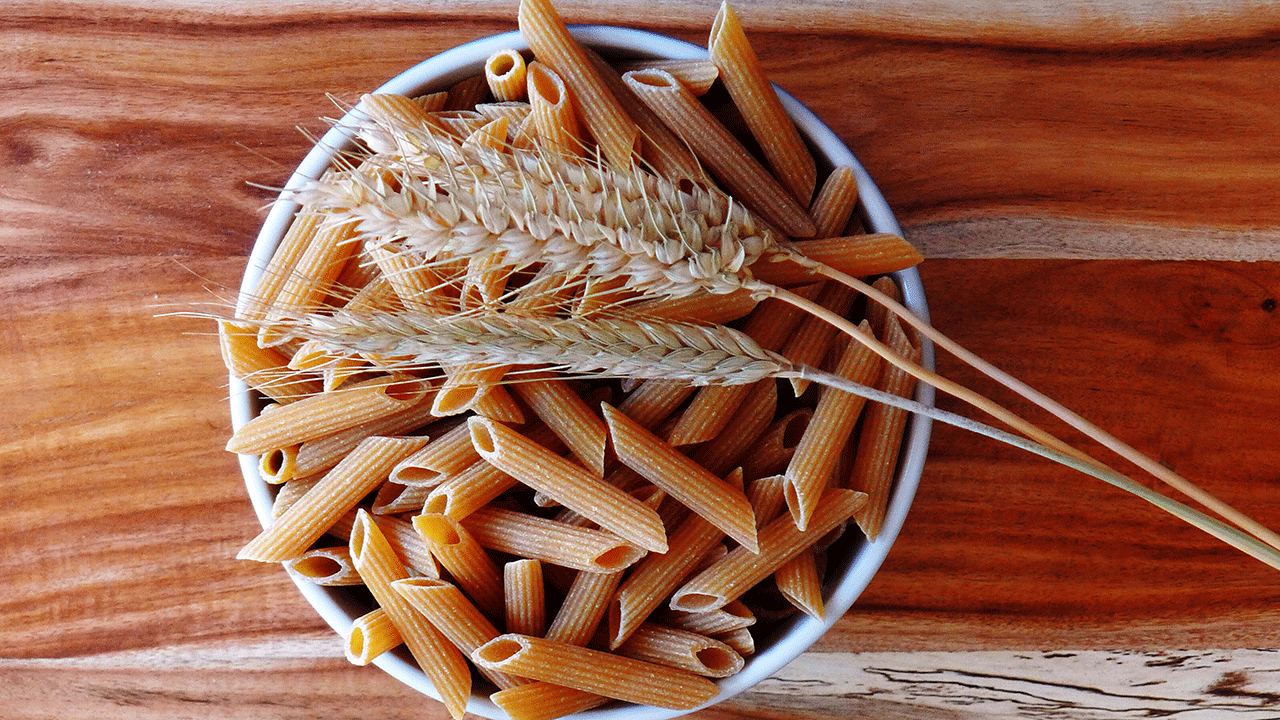
8. Walnuts
What makes walnuts stand out among other nuts in terms of heart health is their high percentage of omega 6, omega 3 and polyunsaturated fats, according to Adams.
HEART HEALTH RISK FACTORS FOR WOMEN OVER AGE 50: ‘DON’T IGNORE NEW SYMPTOMS,’ EXPERTS WARN
Whether you eat these on their own, or mixed with other nuts, incorporating walnuts into your daily food intake can have a good impact on your heart health.
9. Flaxseed
Flaxseed is a great source of omega-3, according to Ruth, who also said it is high in fiber and lignans. Both lower the risk of cardiovascular disease.
If you are stumped about how you can incorporate flaxseed into your diet, mix it into your oatmeal or blend it into a fruity smoothie.
10. Grapes and grape juice
The Concord grape used for 100% grape juice has polyphenols, which have been associated with improved blood flow.
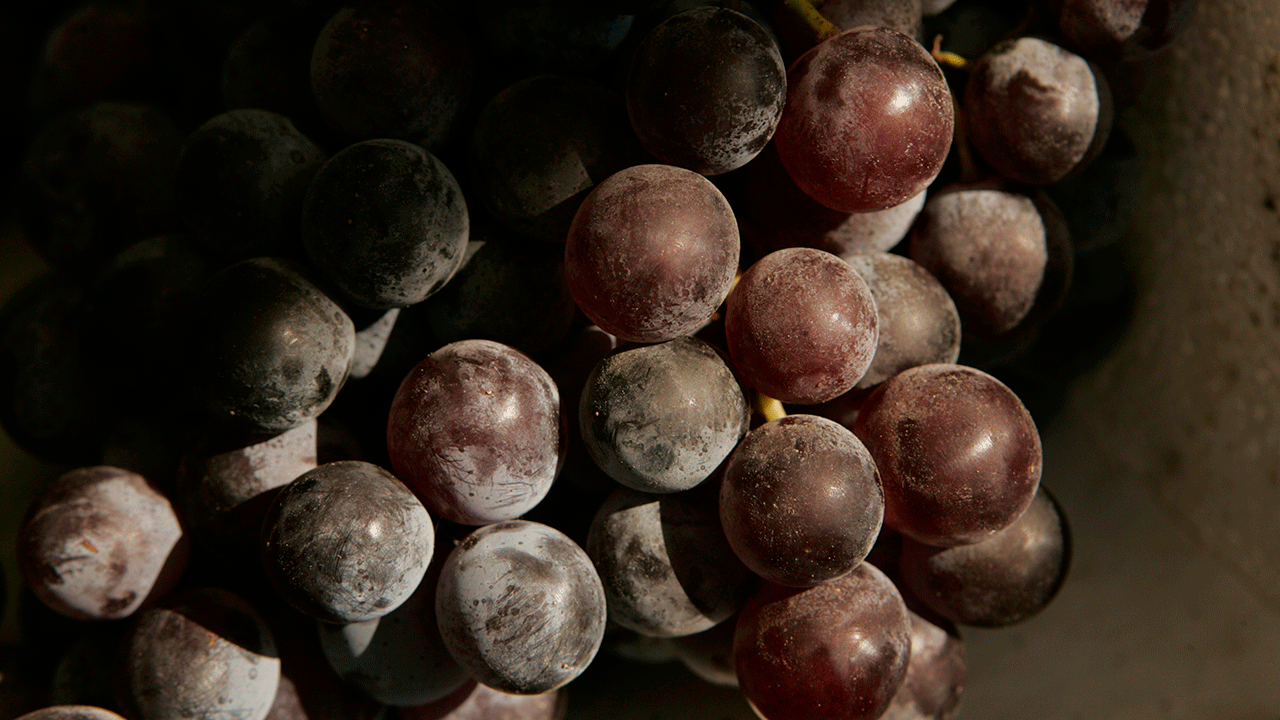
Simply drinking grape juice with breakfast is an easy, juicy way to help a healthy heart.
11. Papaya
Papayas could have a major positive impact on health.
They are high in lycopene, which shows protective activity against the risk of heart attacks, among other things.
SKIPPING THE SALT CAN REDUCE HEART DISEASE RISK BY ALMOST 20%, STUDY FINDS: ‘KNOW WHAT YOU ARE CONSUMING’
Papaya can be added to smoothies, on top of a salad or on a yogurt parfait.
12. Dark chocolate
Chocolate can be very good for you when enjoyed in moderation, of course.
Dark chocolate, specifically, contains numerous health benefits, including lowering your risk of both heart disease and diabetes, according to Mayo Clinic. Dark chocolate also helps prevent blood clots, improves memory and lowers cholesterol, according to the site.
13. Almonds
Almonds are filled with monounsaturated fats and fiber, which help protect against heart disease, according to Healthline.
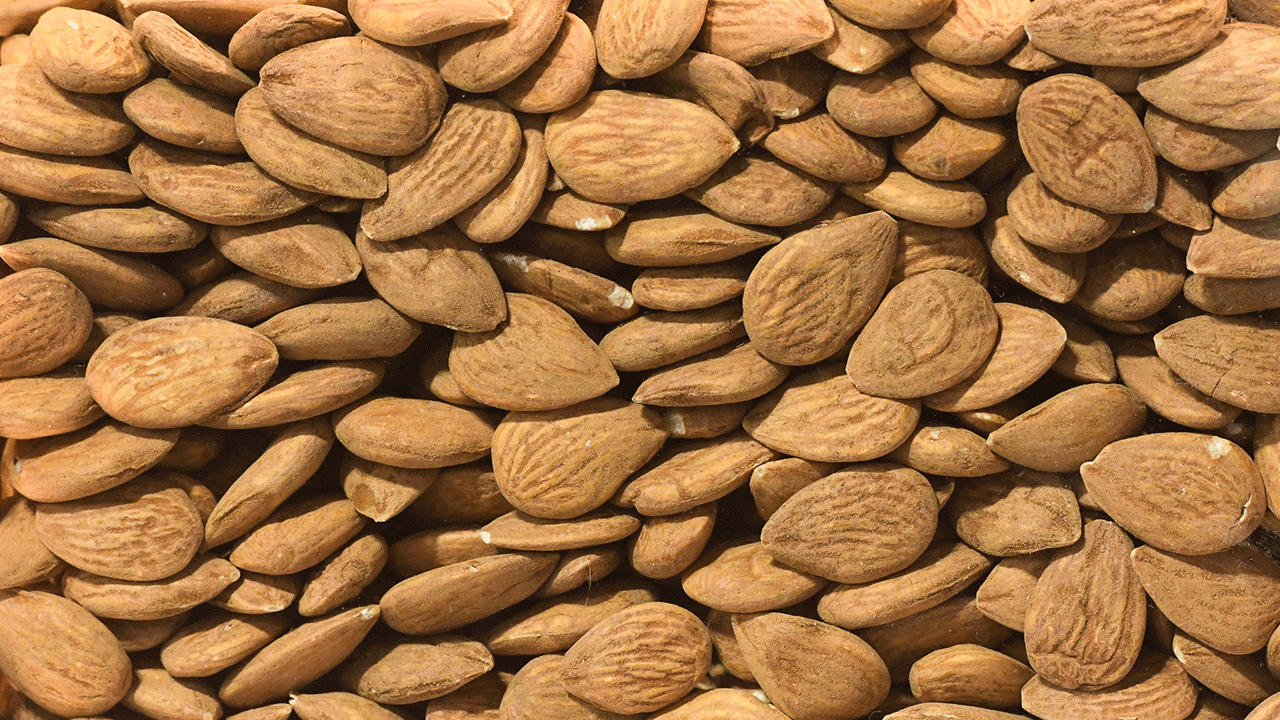
While almonds are great for your health, consume them in moderation if you are trying to lose weight, as they are also very high in calories.
14. Sweet potatoes
Sweet potatoes are a great heart healthy food, according to WebMD.
They are a great source of fiber, vitamin A and lycopene, according to the source, and won’t cause blood sugar to spike.
Sweet potatoes can be enjoyed as they are, sliced down the middle, warmed with a little bit of melted butter. You can also cut the potato into fries, or mash them and sprinkle a touch of cinnamon on top.
15. Pomegranate
Pomegranates have lots of polyphenols and anthocyanins that assist in keeping a healthy heart, according to health.com.
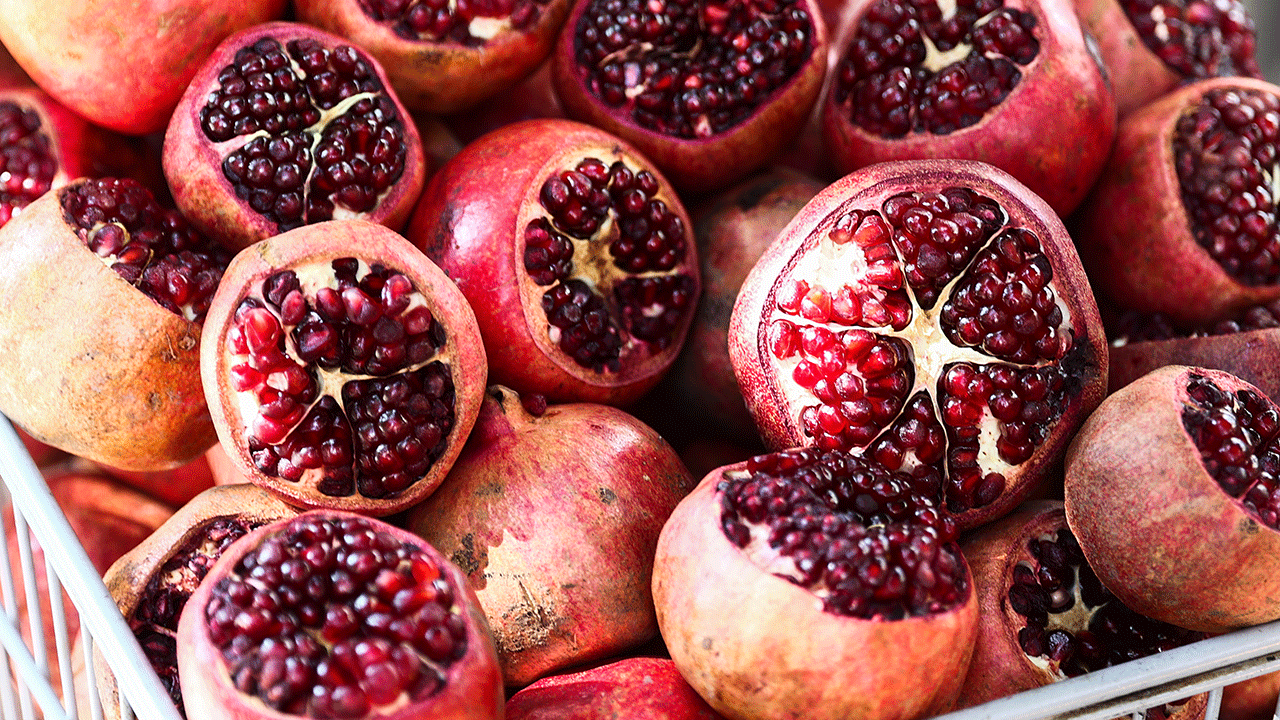
Ways you can add pomegranate seeds to your diet are by mixing them into smoothies, adding them on salad or using them to top off your yogurt.
Of course, you can also eat the seeds as is when removed from the peel.
Foods to limit
The National Institutes of Health highlights foods to limit when thinking about heart health. Foods that are high in sodium and saturated fats are ones you’ll want to consume minimally.
You’ll also want to take a look at your sugar intake from things like sweetened drinks, snacks and candies. Foods high in sugar should be limited.
Lastly, to keep your heart healthy, consider your alcohol consumption and try to keep that low as well.
For more Lifestyle articles, visit www.foxnews.com/lifestyle.












